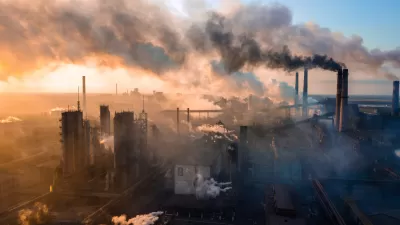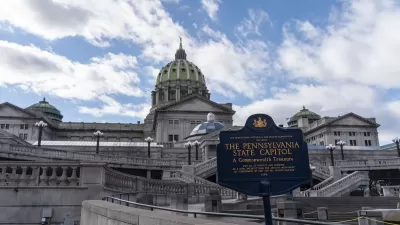A deal came together “quickly and unexpectedly" on the final night of the nearly 2-week United Nations climate talks in Dubai, UAE, according to a series of articles by Washington Post climate reporters.

“This was a paradigm-shifting day for climate talks,” writes Chico Harlan, a global climate correspondent for The Washington Post on December 13, the day after the 28th session of the Conference of the Parties (COP 28) to the United Nations Framework Convention on Climate Change (UNFCCC) was scheduled to conclude.
[See earlier post: “COP28: Will Developed Nations Reduce Emissions?” December 6, 2023]
“The chief global goal of the text is to achieve carbon neutrality by 2050, but even in that scenario, there would be a limited use for oil and gas,” adds Harlan in the source article, one of several updates written by Post reporters after the agreement was unexpectedly reached on December 13.
The text also mentions the need to ramp up technologies “such as carbon capture” that could be used in tandem with fossil fuels to capture emissions.
“It’s easy to criticize this deal, which followed two weeks of tough negotiations, as weak and insufficient,” opined the Los Angeles Times editorial board on Dec. 13. "It is nonbinding and full of caveats and loopholes.”
It calls for “transitioning away” from fossil fuels, rather than phasing out, which many entities, including the United States, the European Union and vulnerable island states, were pushing for.
But the agreement is a milestone nonetheless. There is now a baseline global consensus on the need to move beyond fossil fuels.
FULL STORY: The ‘beginning of the end’ for fossil fuels

Maui's Vacation Rental Debate Turns Ugly
Verbal attacks, misinformation campaigns and fistfights plague a high-stakes debate to convert thousands of vacation rentals into long-term housing.

Planetizen Federal Action Tracker
A weekly monitor of how Trump’s orders and actions are impacting planners and planning in America.

In Urban Planning, AI Prompting Could be the New Design Thinking
Creativity has long been key to great urban design. What if we see AI as our new creative partner?

King County Supportive Housing Program Offers Hope for Unhoused Residents
The county is taking a ‘Housing First’ approach that prioritizes getting people into housing, then offering wraparound supportive services.

Researchers Use AI to Get Clearer Picture of US Housing
Analysts are using artificial intelligence to supercharge their research by allowing them to comb through data faster. Though these AI tools can be error prone, they save time and housing researchers are optimistic about the future.

Making Shared Micromobility More Inclusive
Cities and shared mobility system operators can do more to include people with disabilities in planning and operations, per a new report.
Urban Design for Planners 1: Software Tools
This six-course series explores essential urban design concepts using open source software and equips planners with the tools they need to participate fully in the urban design process.
Planning for Universal Design
Learn the tools for implementing Universal Design in planning regulations.
planning NEXT
Appalachian Highlands Housing Partners
Mpact (founded as Rail~Volution)
City of Camden Redevelopment Agency
City of Astoria
City of Portland
City of Laramie





























